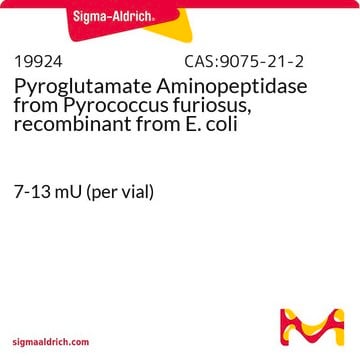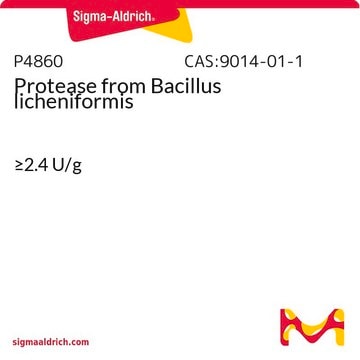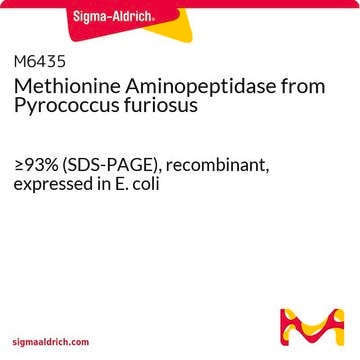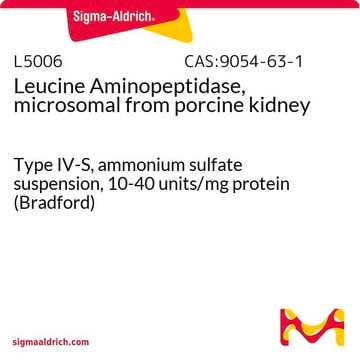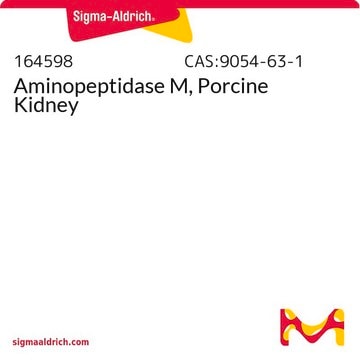P6236
Pyroglutamate Aminopeptidase from Pyrococcus furiosus
recombinant, expressed in E. coli, ~90% (SDS-PAGE), ≥5.0 units/mg protein
Sinónimos:
L-Pyrrolidone carboxyl peptidase
About This Item
Productos recomendados
recombinant
expressed in E. coli
Quality Level
assay
~90% (SDS-PAGE)
form
lyophilized powder
specific activity
≥5.0 units/mg protein
mol wt
24.072 kDa by amino acid sequence
28 kDa by SDS-PAGE
shipped in
dry ice
storage temp.
−20°C
Categorías relacionadas
General description
Application
Biochem/physiol Actions
Unit Definition
Physical form
Preparation Note
signalword
Danger
hcodes
Hazard Classifications
Eye Irrit. 2 - Resp. Sens. 1 - Skin Irrit. 2 - STOT SE 3
target_organs
Respiratory system
Storage Class
11 - Combustible Solids
wgk_germany
WGK 3
flash_point_f
Not applicable
flash_point_c
Not applicable
ppe
Eyeshields, Gloves, type N95 (US)
Certificados de análisis (COA)
Busque Certificados de análisis (COA) introduciendo el número de lote del producto. Los números de lote se encuentran en la etiqueta del producto después de las palabras «Lot» o «Batch»
¿Ya tiene este producto?
Encuentre la documentación para los productos que ha comprado recientemente en la Biblioteca de documentos.
Los clientes también vieron
Nuestro equipo de científicos tiene experiencia en todas las áreas de investigación: Ciencias de la vida, Ciencia de los materiales, Síntesis química, Cromatografía, Analítica y muchas otras.
Póngase en contacto con el Servicio técnico